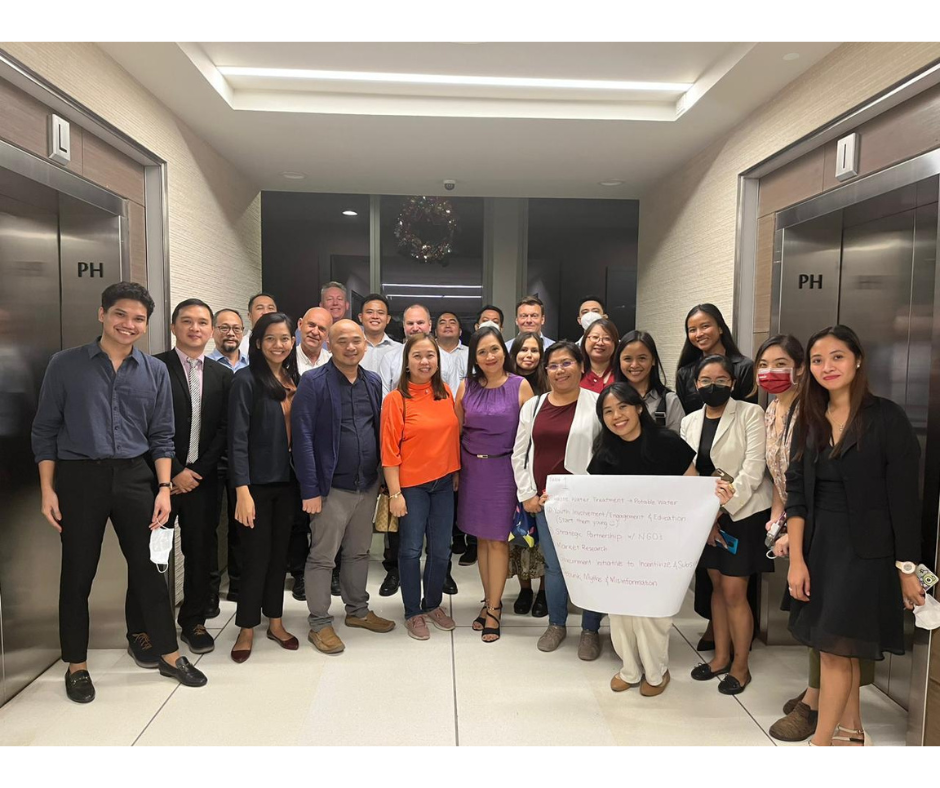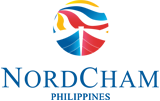"As the water demand increases, it is time to tap recycled water as an alternative supply source to address water shortages," statements from the NordCham Sustainability Committee
The NordCham Sustainability Committee aims for more collaboration across industries and to learn from each other and experts. Going forward, the Sustainability Committee hosts nine annual meetings on varying sustainability topics with resource speakers and sharing of best practices, opportunities for networking and building partnerships, and collaboration with government units.
The Committee is intended for business partners of NordCham, but guests with matching experience and responsibility are usually also accepted. Meetings have around 30 attendees representing a good mix of large, medium and small-sized companies. Past business partners joining includes IKEA, AstraZeneca, Converge, SN Aboitiz Power, Arla Foods, etc.
Interested guests are welcome to contact Executive Director, Jesper Svenningsen at js@nordcham.com.ph. The next Sustainability Committee meeting will be in January 2023. More details on the topic and program will follow.
On 23 November, the Nordic Chamber of Commerce of the Philippines Inc. held its 7th and last Sustainability Committee Meeting for 2022, focusing on SDG 6: Clean Water and Sanitation at IWG Spaces in World Plaza, BGC. As NordCham want to inspire as many people and especially leaders as possible, we have made below write up from the event.
"As the water demand increases, it is time to tap recycled water as an alternative supply source to address water shortages," statements from the NordCham Sustainability Committee.
The committee meeting focused on the companies' initiative and practical steps to promote clean water usage, management, and efficiency. The esteemed speakers were Mr. Antti Inkinen, Regional Director of Asia & Pacific at NIRAS International Consulting and Mr. John Emmanuel B. Martinez, Assistant Vice President & Head of Sustainability Department, Maynilad Water Services.
Mr. Antti opened the Committee Meeting by introducing NIRAS as an international multi-disciplinary consultancy with Nordic values of sustainability deeply embedded in their corporate strategy. NIRAS DNA works across the process industry, analytics and planning, development consulting, data and digitalization, infrastructure, environment and ecology, and water. With 53 offices in 31 countries, 2400 professionals, plus 33, 000 verified experts in our CVPT network, and 7000 projects completed globally.
In 2018, NIRAS established a Regional Head Office in the Philippines with 20 permanent employees. By 2022, the company intends to lead 100 projects in the Philippines, Vietnam, and Bangladesh. NIRAS aimed to oversee regional operations while serving as a knowledge hub for the Asian Development Bank, European Union, and Agence Française de Développement. In addition, the company intends to expand its civil engineering, water, environmental, and renewable sectors by 2023.
Mr. Antti emphasized NIRAS's global operations in water resources, such as irrigation, flood risk management, and integrated water resource management:
The Mindanao Irrigation Development Project will improve irrigation planning, design, and management capabilities, create effective and climate-resilient irrigation systems, and implement climate-resilient irrigated farming practices in Mindanao.
Softening the water for Copenhagen, NIRAS is one of the companies that will implement the water softening and modernization of the seven largest waterworks in Denmark. Through the pellet softening method, greater quality and safety of drinking water and security of water supply are addressed to half of the consumers in Copenhagen and its surrounding municipalities.
NIRAS will oversee the planning and construction of the Faisalabad Wastewater Treatment Plant to address Pakistan's growing untreated wastewater problem.
Sustainable WASH for All Nepal, a project supported by the Nepalese and Finnish governments, aims to restore existing water supply systems and construct accessible sanitation facilities in communities throughout the Karnali region.
NIRAS pioneered the project building capacity of the Disaster Risk Management and Climate of Rural Water Supply and Sanitation Services Sector Project in Cambodia.
LEAKman, a NIRAS project, is an integrated leakage solution for managing up to 5% non-revenue water (NRW). This solution has been adopted in Nordic countries, the Middle East, and Southeast Asia. Water Management Strategizing in Malaysia used the LEAKman approach to reduce NRW in Johor from 24% to 10%.
NIRAS's Holistic Management Information System (HOMIS) is a software product that provides holistic management by detecting leakage. In Al Ain, UAE, the NRW level was reduced from 40% to 10% between 2010 and 2012.
NIRAS is currently delivering a five-stage plan to address the following: reduce NRW leakage from 35% to 20% by 2030; and establish an advanced online model of the entire supply network that provides the company with a real-time overview of water flow, volume, pressure, performance indicators, and leakage.
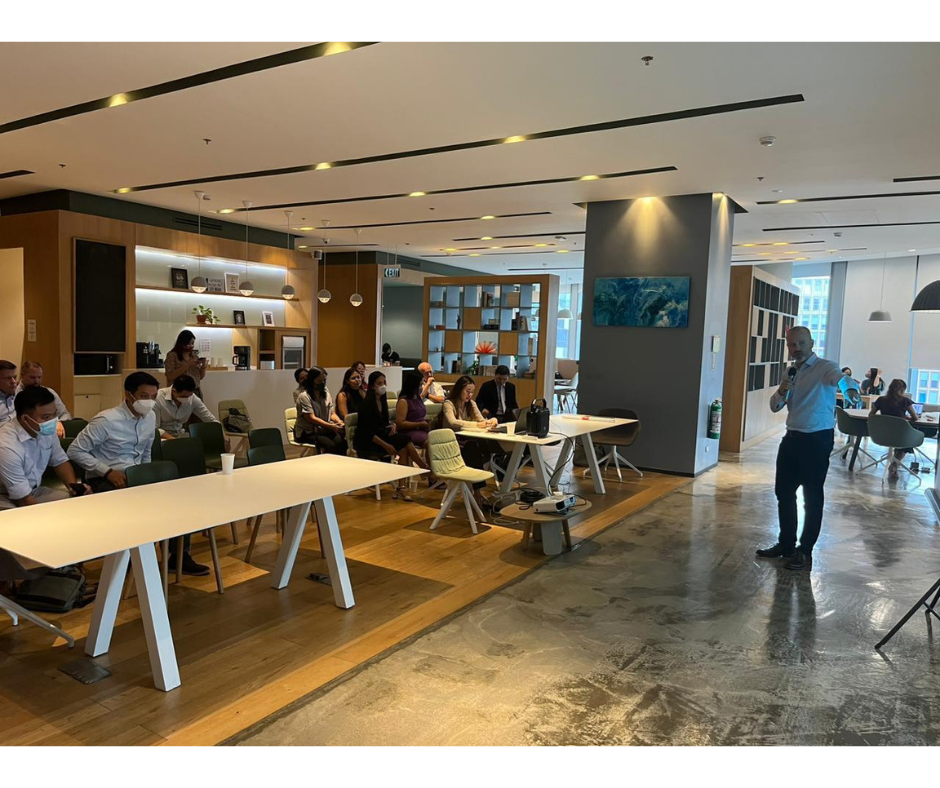
Afterward, Engr. Emman started his presentation by introducing Maynilad as the water and wastewater provider for 17 cities and municipalities of Metro Manila. He also underscored the WEF and SDG Reports' predictions that by 2030, there will be a 40% imbalance between global water supply and demand and that 2 billion people, and 771 million people will lack access to safe drinking water sources. Additionally, Engr. Emman noted that local water shortages persist yearly despite the Philippines' rich water supplies, proximity to aquatic bodies, and average 2,300mm of annual rainfall. Maynilad Water, therefore, makes use of alternate water sources through desalinating and recycling water.
Engr. Emman noted in his presentation that the 15 million residents of Metro Manila are dependent on the Angat Dam, a hydroelectric dam with a concrete water reservoir embankment that provides water to Metro Manila and the nearby provinces. In 2019, the Philippines experienced a prolonged El Niño (longer drought) that limited the amount of water drawn from the Angat Dam. Additionally, water availability may be impacted by other natural disasters like climate change. Maynilad unveiled the "New Water" initiative, which uses treated sewage as a water supply, to address these urgent issues. This program aims to increase the variety of alternative raw water sources that can be used to supplement existing supplies during times of scarcity.
The specific insights from Engr. Emman's presentation about Parañaque New Water includes:
Ideal water sources for their consistent water quality complied and weather resilient.
Maynilad started the initiative of water recycling in the Philippines. He highlighted Orange Country in the US, which has the largest water reuse facility in the world, Namibia has been reusing water since 1968, and in Singapore NEWater is 40% of tap water.
Maynilad has 22 wastewater treatment facilities. One example is the Parañaque Water Reclamation Facility, the first biological nutrient removal-compliant wastewater treatment facility of Maynilad. The plant serves 500,000 people in Parañaque City and has a daily capacity to process 76 million liters of wastewater.
The modular treatment facility has 10 million liters of New Water daily.
To determine approval among customers, Maynilad has carried out a number of social acceptability tests and public dialogues. In a blind test, the New Water was actually the one most people preferred.
New Water passed a series of tests demonstrating compliance with the Philippine National Standards for Drinking Water (PNSDW) and World Health Organization (WHO) guidelines on potable reuse, however they are pending final approval to fully implement New Water.
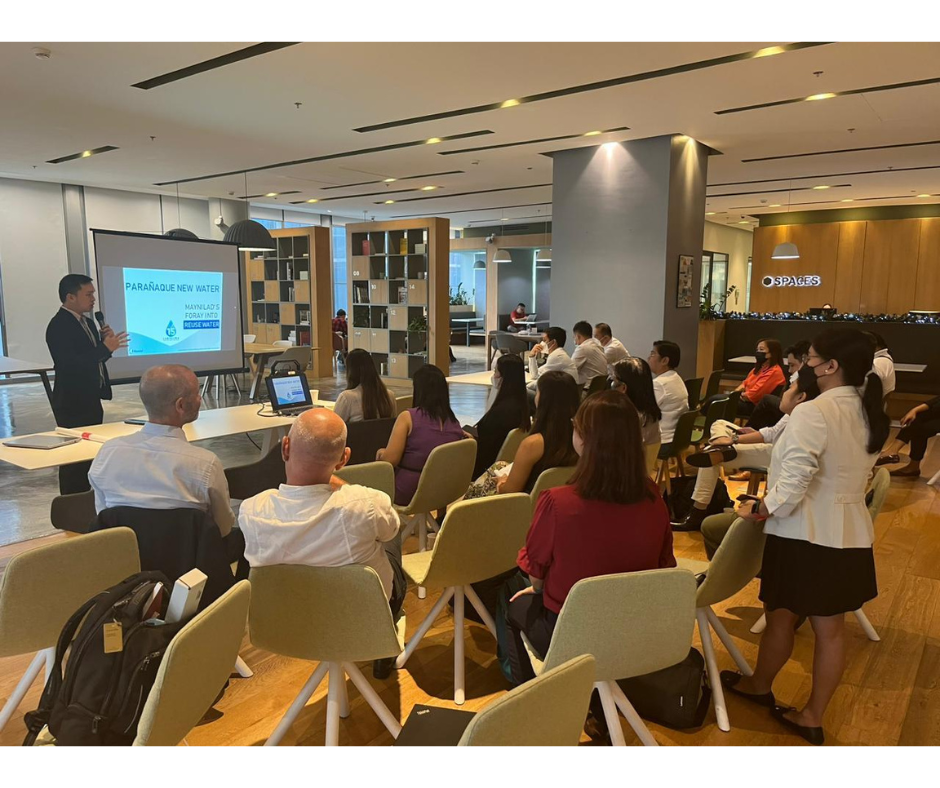
After the two presentations, a brief brainstorming session was held. The following are some of the discussions' key points:
Exploration of new technologies for water sources (e.g., technology in reducing water consumption and application for water leak reporting)
Community behavior change
Education - Youth involvement/Engagement, WASH
Water Stewardship - alliance water stewardship certification
Strategic partnership with NGOs
Upcycling of indigenous materials through water purification, sensor microorganisms/metals, development of filters
Government and private sector initiatives to incentivize and subsidize
Industry to measure water footprint
Strict government regulations, policies, and enforcement
Small-scale use of New Water
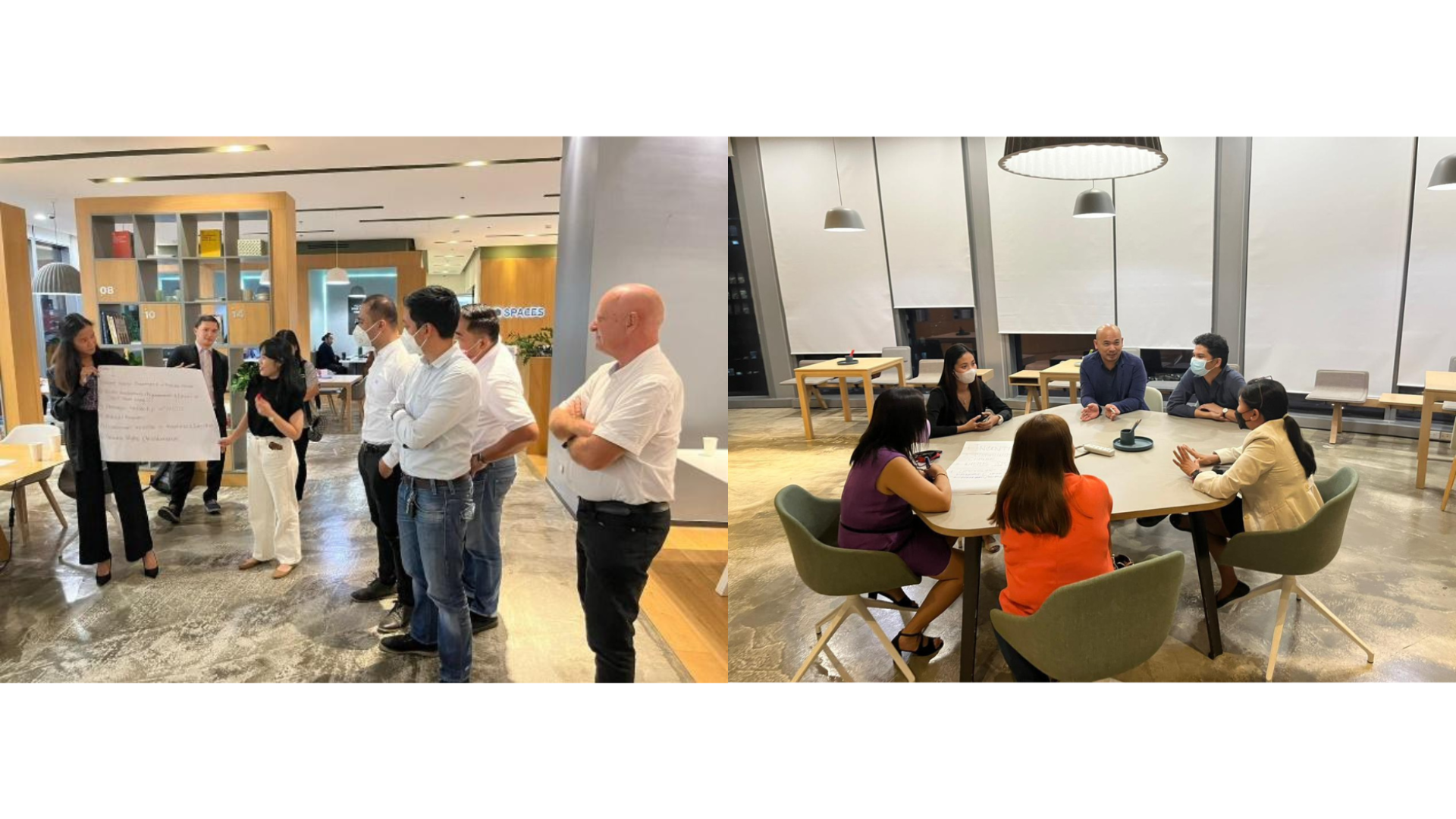
The committee meeting was the 7th and last meeting of the Sustainability Committee by NordCham for this year. The NordCham Sustainability Committee aims for more collaboration across industries and to learn from each other and experts. Going forward, the Sustainability Committee hosts nine annual meetings on varying sustainability topics with resource speakers and sharing of best practices, opportunities for networking and building partnerships, and collaboration with government units.
NordCham Philippines looks forward to sustained collaboration and showcasing the sustainability initiatives of business partners while contributing to positive change by forging stronger relations with the government.
